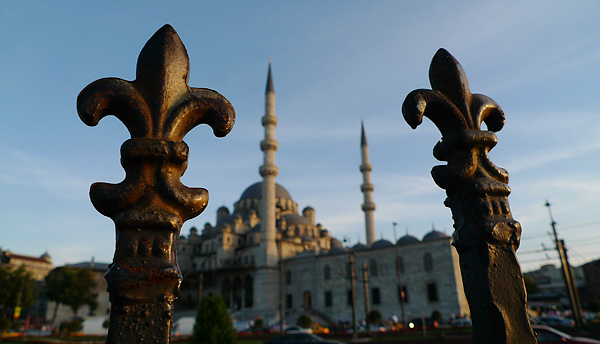Taylor Davidson · Creating the means to match the spirit (How to Plan for Travel)

A question via email in response to How to Pack for a Nomadic Life…
… How does it all work? So many of these [posts about what to pack] just seem to assume we have our [stuff] together enough that the only question is packing shoes or sandals. Well, many of us have the spirit … though the means elude us.
How does it work? In short:
The spirit creates the means; if you truly want to travel, you’ll find a way.
Travel isn’t easy. Dealing with the practicalities of worlds home and abroad, planning, deciding, preparing, booking and then actually traveling… the grind of the journey gets to us all some days. It’s not for everyone, and it isn’t the cure-all some people believe it be; but for those of us who make conscious decisions and approach travel with an eye and a mind towards its limitations, we can create realities that live up to our dreams.
How do we handle the logistics?
Plan less and plan now.
Plan less.
Embrace the unknown. Traveling without a plan can often be the best way to travel; half of the fun of travel are the experiences, moments and encounters you couldn’t schedule if you wanted to.
Open yourself up to serendipity by creating the situations for good things to happen. Then show up, mind, body and soul, and make the universe bend in your favour.
But of course, some planning is necessary; luckily there is a wealth of information available. Standbys like the Lonely Planet and Rough Guide guidebooks; newer possibilities like Offbeat Guides or iPhone applications; the wealth of information available through forums on travel websites like BootsnAll and World Hum and the Lonely Planet Thorn Tree travel forum; the wealth of travel bloggers with a range of travel and lifestyle design tips (resources and links detailed below); and of course, the all-knowing Google.
Planning for travel (arrangements, logistics, buses, places to stay, etc.) is actually a bit easier if you’re winging it rather than planning everything out ahead of time. Start with the basics for booking travel: Kayak.com, Vayama.com, Eurorail, Hostelworld.com, Hostels.com, TripAdvisor; it’s not really that hard if you’re open to figuring it out along the way.
Planning everything out ahead of time? Not only is it a guarantee for a headache, but you’ll also miss out on one of the best resources for information: people. Ask people along the way: tourist information centres, fellow travelers and locals. Travelers love to talk about destinations and routes; stay at a hostel and you’ll learn the ropes pretty quickly. Just figure out who to ask what and how to decipher their biases and use everyone’s information to make your own judgments. Do it, and you’ll learn.
Plan now.
Pay attention to the long-term impacts of seemingly short-term decisions. What you own ends up owning you; contracts, leases, loans, expenses small and large: all have implications beyond the initial purchase decision. Even “freebies” can have the hidden cost of commitments and paths you may not originally intend to pursue. By no means do I advocate running from commitments: just know what you’re really committing to.
Mortgages? 9-5 jobs? Student loans, car loans? All choices, not necessities or requirements for life.
Making and valuing trade-offs is part of “having the spirit”; if you can’t make sacrifices, then you don’t really have the spirit.
Don’t know how to jump off on a year of gallivanting around the world with nothing but a backpack and a round-the-world airline ticket?
Then don’t.
Start small: take an unplanned day-trip, an unscheduled weekend jaunt, a week-long trip with little planning and less gear. Test the kinds of experiences you think you want to create through travel. You might be surprised.
Starting small also helps you figure out how to handle some of the necessities. Passports? Get one. Visas? Depends on where you’re from and where you’re going.
Daily necessities? Bring some stuff you absolutely have to have, and figure out the rest along the way. People do laundry, buy medicine, exchange currency, get haircuts, take baths, etc. all around the world. The most important thing to bring is an inquisitive mind and an openness to try doing things the way locals do.
Just remember: wherever we go, we always bring ourselves.